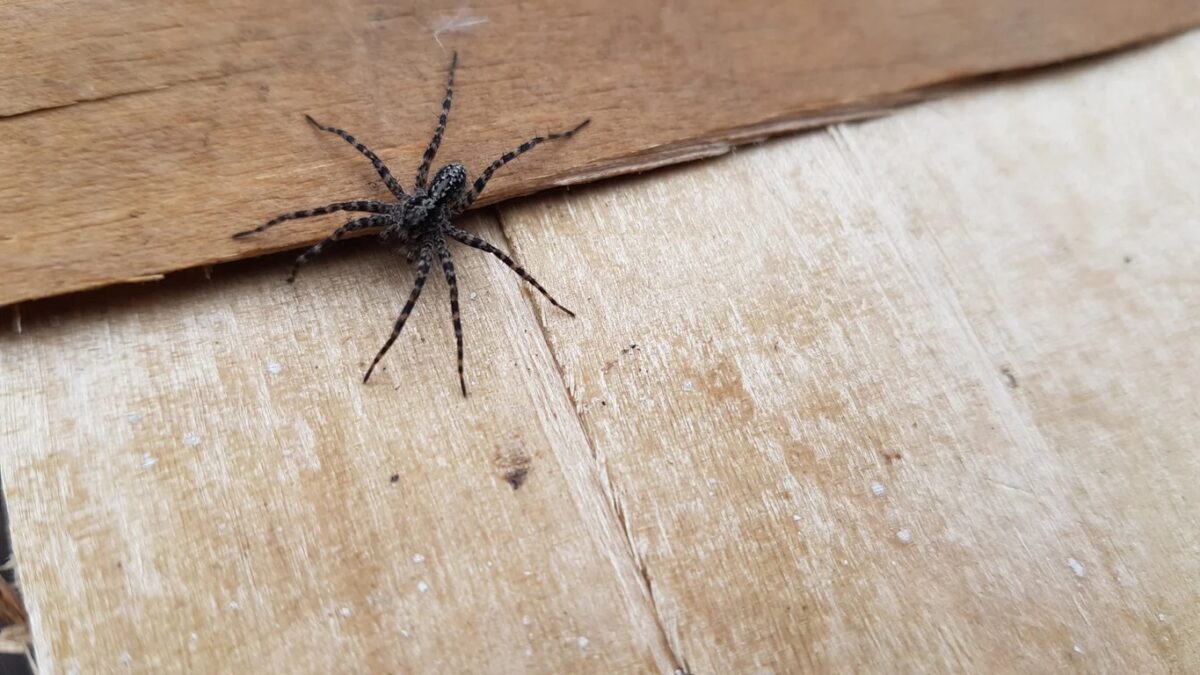Gardens serve as sanctuaries for enthusiasts, yet spiders sometimes disrupt this peaceful coexistence. While spiders play a role in garden ecosystems, their presence indoors can be unsettling for gardening enthusiasts. So, how to get rid of spiders?
For those deeply connected to their gardens, spider infestations can pose challenges. The concern isn’t just about their homes but also about maintaining a balanced garden ecosystem.
This article offers holistic solutions how to get rid of spiders without harming the garden’s delicate balance. It emphasizes eco-friendly methods, fostering a symbiotic relationship between gardeners and nature.
Spiders and Gardens
The Role of Spiders in Garden Ecosystems
Spiders act as natural pest controllers in gardens, preying on insects that could harm plants. They contribute positively to the ecosystem by keeping pest populations in check.
Common Spiders Found in Gardens
Identifying spiders commonly found in gardens helps understand their behavior. From orb-weavers to jumping spiders, each has distinct habits that influence their interaction with garden environments.
How Spider Infestations Impact Garden Health?
While spiders benefit gardens, unchecked infestations can disrupt the ecosystem’s balance. Understanding the impact of these infestations is crucial for maintaining a healthy garden.
Recognizing the Need for Action
Signs of Spider Infestation
Web clusters, increased spider sightings, or visible egg sacs are signs indicating a burgeoning spider population. Gardeners should monitor these signs to gauge the need for action.
When to Act and When to Observe
Maintaining a tolerance threshold is essential. Sometimes, spider presence can be managed without drastic intervention, allowing natural balance to prevail.
How to Get Rid of Spiders Naturally?
Exploring eco-conscious methods ensures spider removal without harming beneficial insects or plants.
- Essential Oils – Use natural essential oils that spiders find unpleasant. Peppermint, citronella, tea tree, and eucalyptus oils are examples. Mix a few drops with water and spray it in areas where spiders tend to gather.
- Diatomaceous Earth – Sprinkle food-grade diatomaceous earth around the perimeter of your garden. This substance is harmless to humans and pets but can be effective in deterring spiders by dehydrating them.
- Citrus Peels – Spiders dislike the smell of citrus. Place citrus peels, such as those from oranges or lemons, around the garden to discourage spiders from building webs.
- Cedar Mulch – Use cedar mulch in your garden. Cedar has natural oils that spiders find repellent, and it can also deter other pests.
- Neem Oil – Neem oil is a natural insecticide that is safe for plants and can help control spider populations. Mix neem oil with water and spray it on affected areas.
- Vinegar Solution – Create a solution of equal parts water and white vinegar and spray it in areas where spiders are prevalent. This can help deter them without harming plants.
- Physical Barriers – Use physical barriers such as diatomaceous earth, copper tape, or mesh to prevent spiders from entering certain areas of your garden.
Remember to choose methods that align with your environmental values and consider the overall impact on the ecosystem. Promoting a healthy and diverse garden is often the key to natural pest control.
How to Get Rid of Spiders Outside Naturally?
Spider Repellents
Certain plants, like lavender, mint, or marigolds, act as natural repellents for spiders. Understanding which plants repel spiders and strategically placing them in the garden can help deter infestations. An effective way to get rid of spiders from your garden is to create a natural spider repellent.
Habitat Modifications
Simple modifications, like reducing clutter or sealing entry points, disrupt spiders’ ideal habitats, discouraging their presence without causing harm to the garden. Simply consistently removing spider webs as you find them may be enough to encourage spiders living in your garden to move on.
DIY Remedies and Chemical-Free Solutions
Homemade repellents using essential oils or vinegar and non-toxic spider traps offer effective yet environmentally friendly solutions for removing spiders. Herbs like basil, mint, and rosemary seem to repel insects and spiders.
FAQS
What are some natural ways to keep spiders out of my garden?
Natural methods like planting spider-repelling plants such as lavender, mint, or marigolds can deter spiders. Additionally, keeping the garden clean by reducing clutter and sealing entry points can discourage spider infestations.
How do spiders in the home affect garden health?
While spiders play a beneficial role in gardens by controlling pest populations, unchecked infestations indoors might disrupt the garden’s ecological balance. Understanding the impact helps in maintaining a healthy garden ecosystem.
Are there eco-friendly methods to get rid of spiders without harming my garden?
Yes, eco-conscious approaches involve using natural remedies like essential oils or vinegar-based sprays as spider repellents. Habitat modifications, such as reducing hiding spots and sealing entryways, can also effectively deter spiders without harming the garden.
What can I use at home to keep spiders away?
Spiders may be deterred by strong odors such as citrus and vinegar. In a tiny spray bottle, combine equal parts water and lemon juice or white vinegar to make a natural spider repellant. When using these repellents in your yard, make sure to target the weeds and the areas around your plants.
How do I get rid of spiders permanently?
To get rid of spiders, inspect your home for harborage areas and entry points, seal all gaps and cracks, remove cobwebs, clean and declutter your space, apply a perimeter insecticide, set traps, and spot-treat individual spiders
What natural things do spiders hate?
Essential oils like peppermint, cinnamon, lavender, tea tree, and eucalyptus have strong scents that many humans enjoy, but that spiders hate.
Conclusion
Gardens thrive when they strike a balance between nature’s wonders and unwanted intruders. Effective how to get rid of spiders discussed here ensure harmonious coexistence, allowing gardeners to enjoy their sanctuaries without compromising their ecological values.

